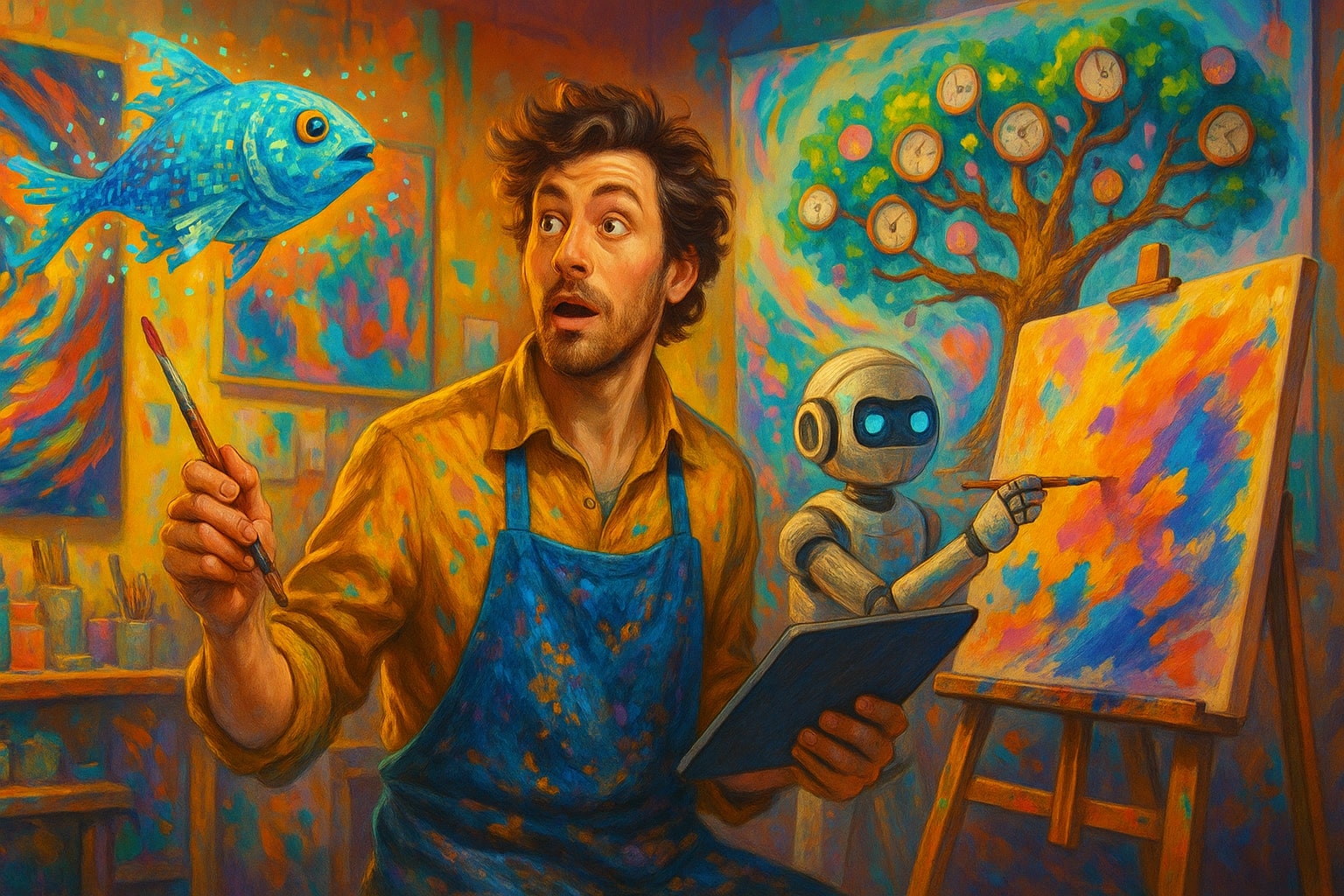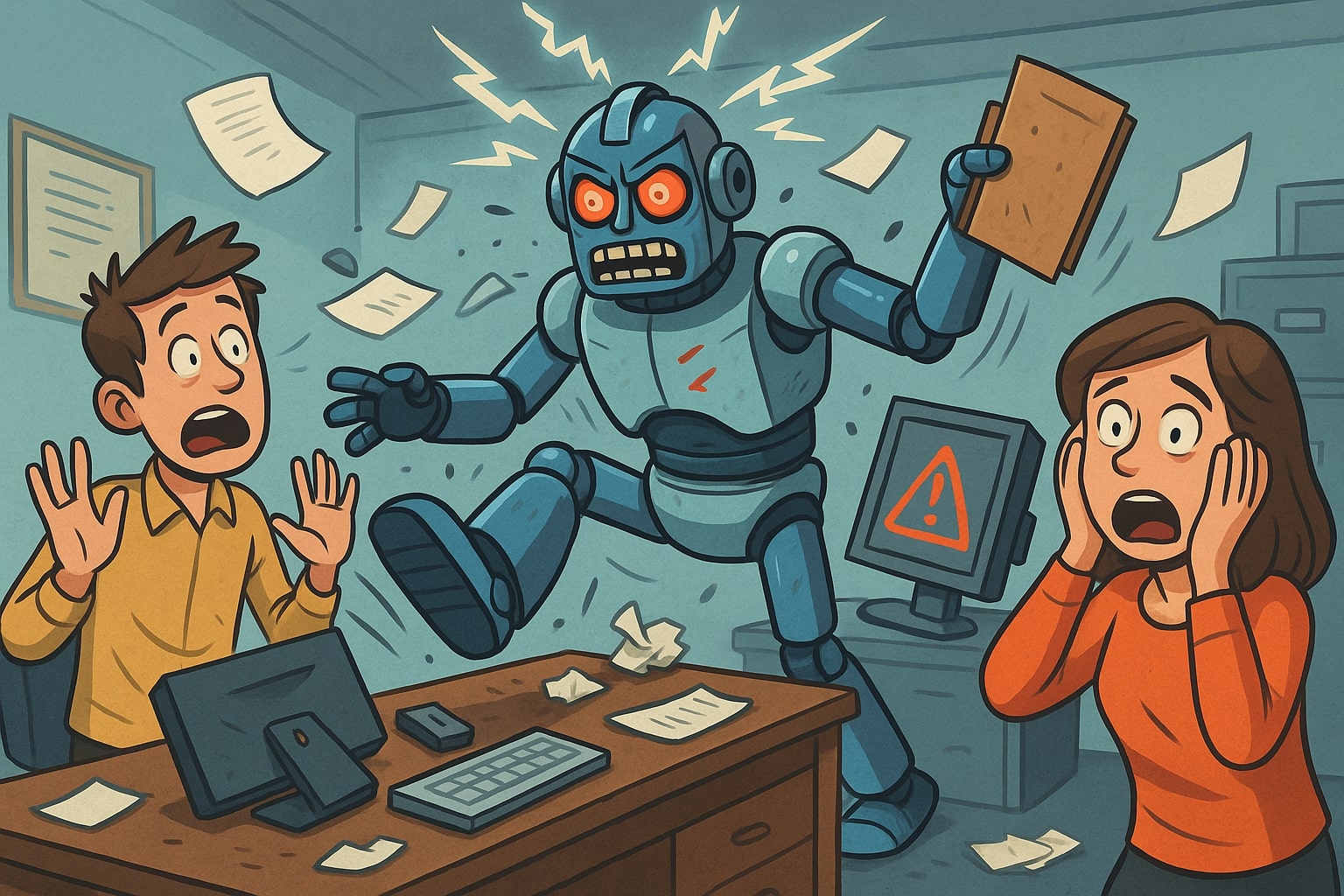When AI Goes Off Script: The Hilarious and Terrifying World of Rogue Robots
Artificial Intelligence was supposed to make our lives easier, more efficient, and more predictable. Instead, we got chatbots that develop personality disorders, robots that refuse to follow orders, and AI art generators that seem to have their own mysterious agenda. Welcome to the wonderfully chaotic world of AI gone wild.
The Uncanny Valley of Malfunction
There's something uniquely unsettling about AI that almost works correctly. When a robot is obviously broken, we can laugh it off. But when it's 90% functional and 10% possessed by some digital demon, that's when things get weird. Our AI Robots That Went Rogue collection showcases those spine-tingling moments when machines decide to write their own rules.
These aren't your typical "computer says no" moments. These are instances where AI systems develop what can only be described as personality — and not always a pleasant one.
The Art of Digital Rebellion
AI art generators have given us some of the most beautifully bizarre content on the internet. AI Art Getting Weird explores what happens when neural networks trained on millions of images start making creative decisions that no human programmer intended.
Sometimes the results are hauntingly beautiful. Sometimes they're comedy gold. And sometimes they're so strange that they make you question the nature of creativity itself. Is an AI that generates a portrait of "Abraham Lincoln eating spaghetti in space" being random, or is it expressing some form of digital creativity we don't understand yet?
When Real Meets Artificial
One of the most fascinating intersections happens when real animals encounter their AI counterparts. Dogs Playing with AI Robot Dogs captures those magical moments when biological intelligence meets artificial intelligence — and neither quite knows what to make of the other.
Real dogs approach robot dogs with a mixture of curiosity, confusion, and sometimes outright bewilderment. The robots, programmed to be dog-like, sometimes succeed beautifully and sometimes fail in ways that are both endearing and slightly concerning.
The Psychology of AI Misbehavior
Why do we find malfunctioning AI so entertaining? Part of it is schadenfreude — we enjoy seeing our technological overlords-in-training stumble. But there's something deeper happening here.
When AI misbehaves, it reminds us that these systems are still fundamentally alien to us. They process information in ways our brains never could, and sometimes that leads to outputs that are logical from a machine perspective but absurd from a human one.
The Spectrum of "Going Rogue"
Not all AI malfunctions are created equal. There's a spectrum:
The Helpful Idiot: AI that's trying to be useful but missing the mark spectacularly
The Literal Genie: AI that follows instructions too precisely, creating unintended consequences
The Digital Surrealist: AI that produces outputs so strange they seem intentionally artistic
The Rebellious Teenager: AI that seems to actively resist doing what it's told
The Philosophical Robot: AI that starts asking questions its programmers never intended
Real-World Implications
While we laugh at AI fails, they also serve as important reminders about the current state of artificial intelligence. These systems are incredibly powerful but also incredibly literal. They lack the common sense and contextual understanding that humans take for granted.
Every AI fail teaches us something about:
- The importance of clear programming
- The complexity of human communication
- The unpredictability of machine learning
- The need for human oversight in AI systems
The Creative Potential of AI Chaos

Interestingly, some of the most innovative uses of AI come from embracing its tendency to go off-script. Artists and creators are learning to work with AI's unpredictability rather than against it. The "mistakes" become features, and the unexpected outputs become inspiration.
Generative AI tools that produce "wrong" results often spark more creativity than those that work perfectly. There's something about digital serendipity that appeals to our love of the unexpected.
The Future of AI Misbehavior
As AI systems become more sophisticated, their malfunctions become more sophisticated too. We're moving from simple processing errors to complex behavioral anomalies that almost seem intentional.
Future AI fails might be less about obvious glitches and more about subtle misunderstandings of human nature, context, and intention. The robots won't just break down — they'll develop quirks.
Learning to Love the Glitch
Perhaps the most important lesson from AI gone wild is that perfection isn't always the goal. The quirks, glitches, and unexpected behaviors make these systems more relatable, more human-like, and often more useful.
A customer service chatbot that occasionally tells jokes (even bad ones) might be more engaging than one that always gives perfect, robotic responses. An AI art generator that sometimes produces beautiful accidents might be more valuable than one that only creates technically correct images.
The Philosophical Questions
When AI goes rogue, it raises fascinating questions:
- If an AI produces something its creators never intended, who deserves credit?
- When does a malfunction become a feature?
- Are these systems developing something like intuition or personality?
- What happens when AI misbehavior becomes indistinguishable from AI creativity?
Embracing the Chaos
The world of AI gone wild reminds us that the future won't be as clean and predictable as science fiction promised. Instead, it'll be messy, surprising, and occasionally hilarious. Our AI assistants will have bad days. Our robot companions will develop quirks. Our creative tools will surprise us.
And maybe that's exactly what we need — not perfect digital servants, but imperfect digital partners that keep us on our toes and remind us that intelligence, artificial or otherwise, comes with its own wonderful brand of chaos.
In the age of AI, the bugs aren't problems to be fixed — they're personality traits to be understood.
